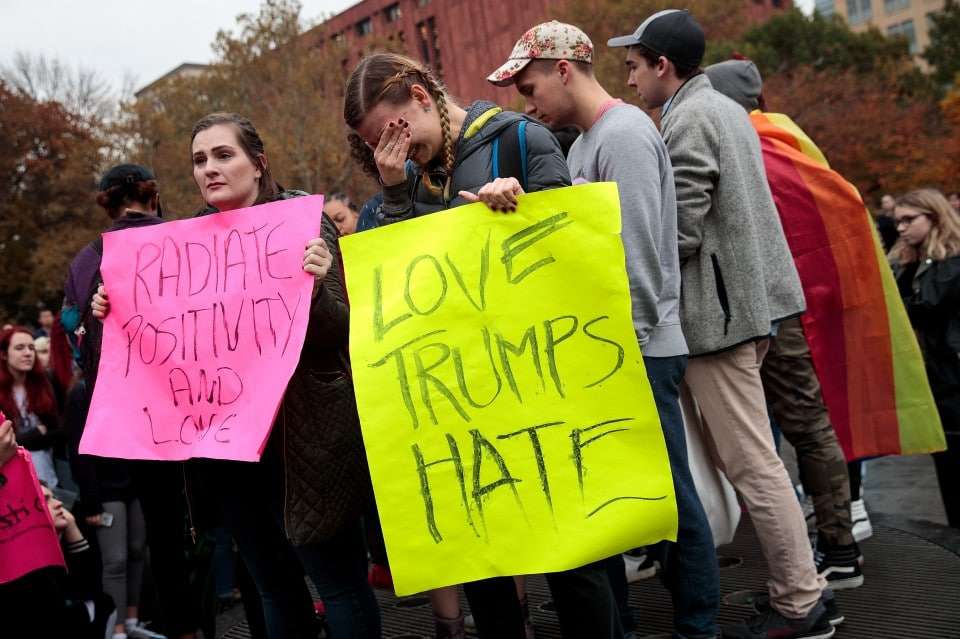The Volokh Conspiracy
Mostly law professors | Sometimes contrarian | Often libertarian | Always independent
Maybe the 'irrational' election-related fears of college students aren't so irrational

The conservative blogosphere is having great fun mocking students at elite colleges who are not simply upset at Donald Trump's victory, but are also expressing fears of the personal consequences of that victory. While it's understandable that, say, Muslim students or students who benefited from President Obama's executive orders on immigration would be concerned about Trump's policies, why would your average progressive white student from an upper-middle-class background attending an elite college be afraid not simply that Trump will be an awful president, but also that something bad will happen to that student personally? Isn't this an example of the self-indulgence of millennials, special snowflakes who think the world revolves around them? Isn't it paranoid and irrational?
A colleague of mine begs to differ. He pointed out to me that many of these students have grown up with progressivism dominant all around them - in the White House, to be sure, but even more so in their elite private and suburban public schools, in their summer camps, in their religious institutions, and especially at their universities.
Moreover, they have noticed how dissenters from dominant political orthodoxy have been treated in these institutions - they are ridiculed, ostracized, sometimes harassed and occasionally punished for their political views. They have seen that progressives have organized to deprive dissenters of their jobs and their livelihoods. The more politically aware among them may have even noticed that the Obama administration has been distinctly unwilling to accommodate religious dissenters. For example, the Obama Justice Department has refused to rule out the possibility that the government would seek to deny tax exemptions for religious institutions that refuse to recognize same-sex marriage.
With the federal government about to be dominated by presumptively regressive and evil Republicans - a tribe that elite students are barely personally familiar with but have heard terrible things about - it's not wholly irrational for progressive students to wonder: Is this going to affect my job prospects in the future? Will the institutions I care about be threatened with federal retaliation? Will a wave of conservative sentiment sweep over the nation, and as a result, will I face ridicule, ostracism and perhaps even punishment for my beliefs?
I would argue that these fears are, in fact, unreasonable; progressives are likely to continue to dominate most of the American establishment, and from the progressive bubble of higher education it's easy to exaggerate how much one's political and religious views actually affect most people's day-to-day life. But unreasonableness is not the same as irrationality, and because they have grown up in an intolerant monoculture, it's not irrational for students to fear the potential consequences of intolerance from the other side.
Show Comments (0)